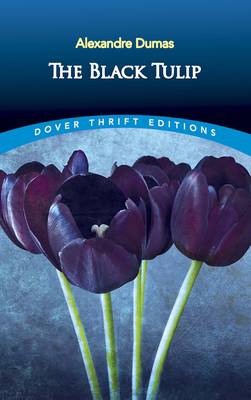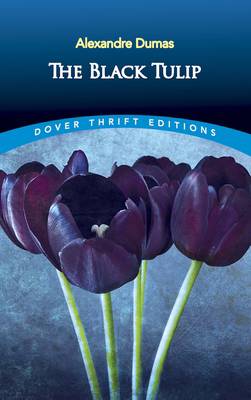
- Afhalen na 1 uur in een winkel met voorraad
- Gratis thuislevering in België vanaf € 30
- Ruim aanbod met 7 miljoen producten
- Afhalen na 1 uur in een winkel met voorraad
- Gratis thuislevering in België vanaf € 30
- Ruim aanbod met 7 miljoen producten
Zoeken
€ 9,45
+ 18 punten
Uitvoering
Omschrijving
A prize of 100,000 guilders awaits the gardener who can produce a black tulip, a rich reward that incites a bitter competition in 17th-century Holland. Cornelius von Baerle, a gifted and passionate florist, has dedicated himself to cultivating the elusive flower. But a ruthless rival, capitalizing on accusations that led to the assassination of Cornelius's godfather, falsely accuses the young horticulturist of treason. Sentenced to life imprisonment, Cornelius conspires with his jailer's daughter to grow the black tulip in secret.
Alexandre Dumas sets his captivating tale in the 1670s, a generation after Holland was gripped by the economic madness of Tulip mania and shortly after the mob lynching of a pair of Dutch statesmen. His fictional treatment of these historic events forms a timeless political allegory in which the rare flower represents the triumph of justice, tolerance, and true love over greed, jealousy, and obsession.
Alexandre Dumas sets his captivating tale in the 1670s, a generation after Holland was gripped by the economic madness of Tulip mania and shortly after the mob lynching of a pair of Dutch statesmen. His fictional treatment of these historic events forms a timeless political allegory in which the rare flower represents the triumph of justice, tolerance, and true love over greed, jealousy, and obsession.
Specificaties
Betrokkenen
- Auteur(s):
- Uitgeverij:
Inhoud
- Aantal bladzijden:
- 352
- Taal:
- Engels
- Reeks:
Eigenschappen
- Productcode (EAN):
- 9780486812489
- Verschijningsdatum:
- 21/06/2017
- Uitvoering:
- Paperback
- Formaat:
- Trade paperback (VS)
- Afmetingen:
- 130 mm x 201 mm
- Gewicht:
- 226 g

Alleen bij Standaard Boekhandel
+ 18 punten op je klantenkaart van Standaard Boekhandel
Beoordelingen
We publiceren alleen reviews die voldoen aan de voorwaarden voor reviews. Bekijk onze voorwaarden voor reviews.







